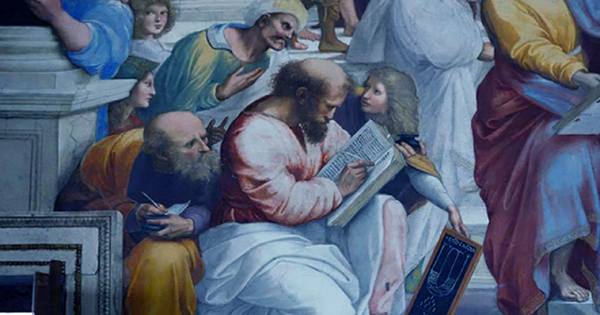If you think of Pythagoras, you will probably see an image of an old man with a beard in a tunic, probably looking at the triangle and making goo-goo eyes. The philosopher is often credited with making scientific and mathematical discoveries that have bothered you for many years, starting with the identification of the morning and evening stars as Venus: the Pythagorean Theorem. He was also, to be fair to him; pie. Pythagoras had somewhat strange beliefs, even for his time. You probably weren’t taught math that he ran a community that forbade followers to wear fur and forced them to wear sandals right before their left. The class would have been a bit slower if all her children had wanted to know her thoughts about flip-flops. The best part of his faith, however, relates to beans.
Pythagoras, you see, believed that when you die your soul is transferred to another creature. Although we don’t know for sure, it has been claimed that he stopped eating meat to prevent such a bizarre situation of accidentally eating a dead friend. The old triangles not only believed this, he further believed that humans and beans came from the same source – why not – and decided to do an experiment to prove it. He found a bunch of beans and buried them, observing how it was done with very few people and waiting for them to grow for weeks. When he dug them up again, he noticed that they looked a bit like human embryos.
Satisfied with his experimental design, without even bothering to try to bury a man, he came to the conclusion that eating beans would be basically like cannibalism, and his contacts forbade them to eat. To Pythagoras and his followers, beans can contain the souls of dead people. As much as the corpses in your mouth can’t be spread, perhaps hitting or crushing beans with a nice tomato sauce is basically his views on you Hannibal Lectern (who also famously ate beans) and your 5-year-old man who is exclusively on human flesh and animal. You are forced to eat refrigerated beans rather than eating food.’
According to the philosopher, the philosopher explained to an ox from time to time that he should never eat beans again when the herdsmen were staring and then the ox was surprised after he stopped eating beans. The understandable thing is I’m sure you’ll agree, although I don’t know why I expected better from someone whose biggest achievement was basic GCSE math.
His belief, although obviously something you can get the response to “what do you say about people, they’re beans”, led to his death. Like all the legends about statistics like this, you should take it with a pinch of salt, though it’s a fun story and we thought we’d let you know it on National Bean Day. According to legend, Pythagoras, the son of an aristocrat named Kylon, tried to enter the bean group (for lack of beans, stay for the triangles) but was rejected due to reluctance to follow the training rules, before which 5 years of silence involved you even get to the triangle.
In order to attack Pythagoras and burn down the buildings of the commune, Kylon naturally organized a mass rally (see, this is exactly how it happened then) formed a human bridge to remove it from the building. Unfortunately, the worst happened as soon as he escaped: his path took him straight to the bean field.
Refusing to be trampled on the ground, Pythagoras was stabbed to death while standing there carrying out massacres like Beanzilla. One crime I am sure Pythagoras mentioned at the time was that it was abominable to give beans. Other theories about his death include that he committed suicide after his followers died in the fire, or he hid from the crowd and died of starvation. This is a lot less fun and fun.





